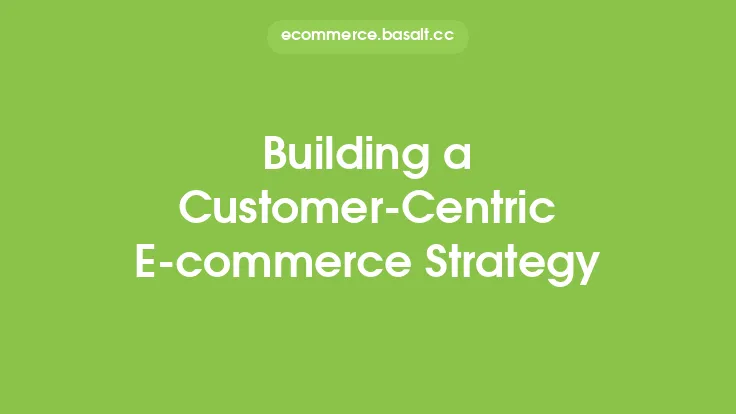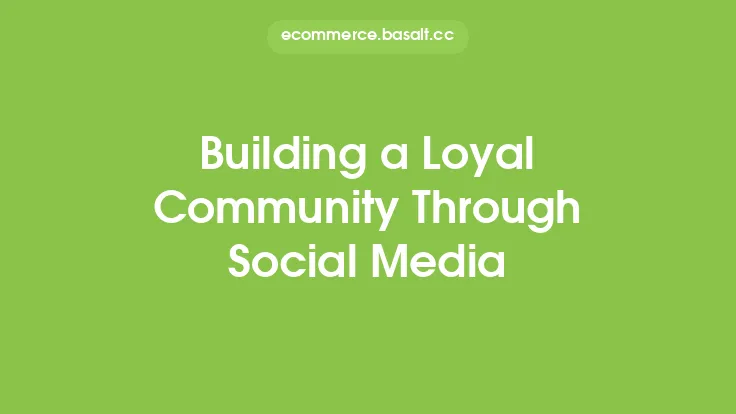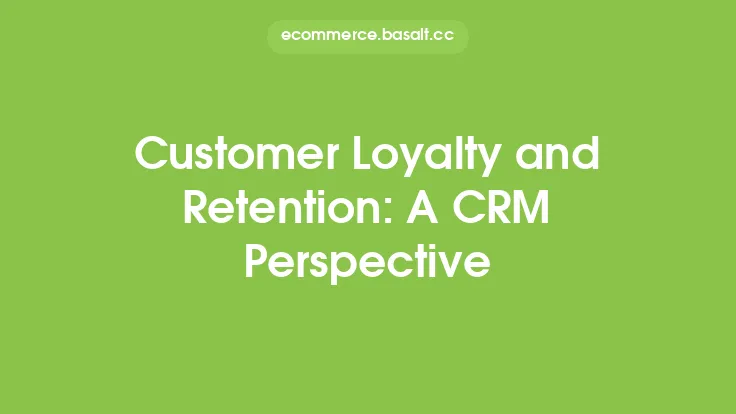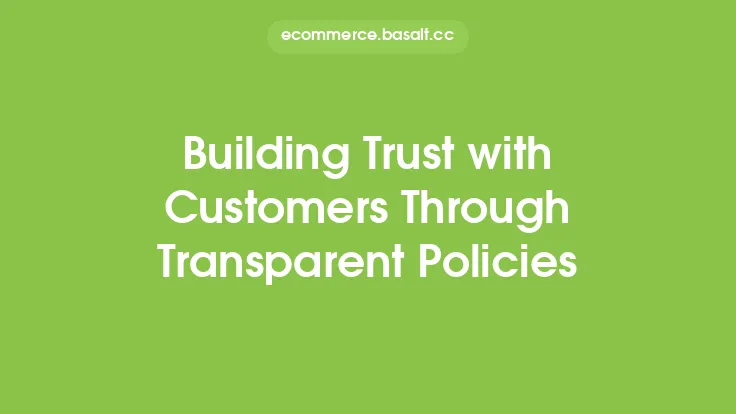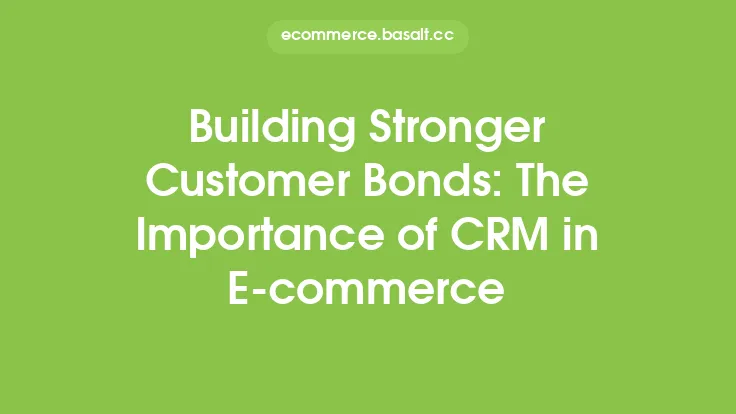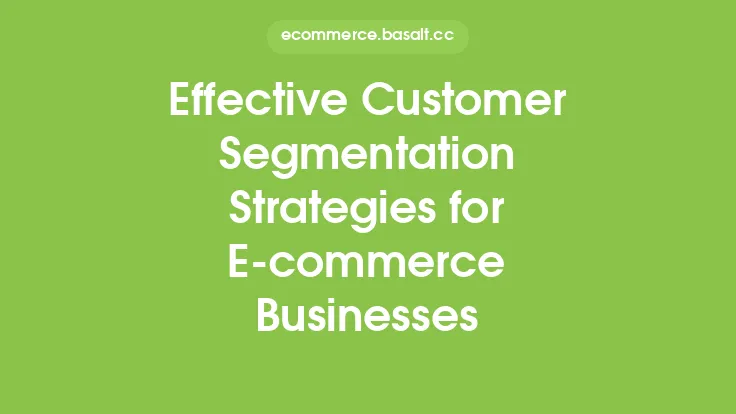In today's competitive e-commerce landscape, building customer loyalty is crucial for driving business growth and sustainability. Customer loyalty is the result of a customer's positive experience with a brand, leading to repeated purchases and long-term engagement. Effective engagement is the foundation of building customer loyalty, as it helps to create a strong emotional connection between the customer and the brand. In this article, we will explore the importance of effective engagement in building customer loyalty and provide insights on how to achieve it.
Understanding Customer Loyalty
Customer loyalty refers to the tendency of customers to continue doing business with a company over time. Loyal customers are more likely to make repeat purchases, recommend the brand to others, and provide positive word-of-mouth. Building customer loyalty requires a deep understanding of customer needs, preferences, and behaviors. It involves creating a personalized experience that meets the customer's expectations and exceeds their needs. Customer loyalty is not just about retaining customers, but also about creating a loyal community that advocates for the brand.
The Role of Effective Engagement
Effective engagement is critical to building customer loyalty. Engagement refers to the interactions between the customer and the brand, including communication, feedback, and support. When customers feel engaged with a brand, they are more likely to develop a strong emotional connection, leading to loyalty and advocacy. Effective engagement involves understanding the customer's preferences, needs, and behaviors, and using this information to create personalized experiences. It also involves providing timely and relevant communication, responding to customer feedback, and offering support when needed.
Strategies for Effective Engagement
There are several strategies that businesses can use to achieve effective engagement and build customer loyalty. These include:
- Personalization: Using customer data to create personalized experiences, such as tailored recommendations, exclusive offers, and customized communication.
- Omnichannel Engagement: Providing a seamless experience across multiple channels, including social media, email, phone, and in-store.
- Content Marketing: Creating high-quality, relevant, and engaging content that educates, entertains, or inspires customers.
- Customer Feedback: Collecting and responding to customer feedback, using it to improve products, services, and experiences.
- Loyalty Programs: Implementing loyalty programs that reward customers for their loyalty, such as points, discounts, or exclusive offers.
- Employee Engagement: Ensuring that employees are engaged, motivated, and empowered to provide exceptional customer service.
The Importance of Emotional Connection
Building an emotional connection with customers is critical to creating loyalty. When customers feel an emotional connection with a brand, they are more likely to develop a strong attachment, leading to loyalty and advocacy. Emotional connection can be created through various means, such as:
- Storytelling: Sharing the brand's story, values, and mission to create an emotional connection with customers.
- User-Generated Content: Encouraging customers to share their experiences, photos, or videos with the brand, creating a sense of community and social proof.
- Social Responsibility: Demonstrating social responsibility, such as supporting charitable causes or promoting sustainability, to create an emotional connection with customers.
Measuring Engagement and Loyalty
Measuring engagement and loyalty is crucial to understanding the effectiveness of customer loyalty strategies. Businesses can use various metrics to measure engagement and loyalty, such as:
- Customer Retention Rate: The percentage of customers who continue to do business with the company over time.
- Net Promoter Score (NPS): A measure of customer satisfaction, based on the likelihood of customers to recommend the brand to others.
- Customer Lifetime Value (CLV): The total value of a customer to the business over their lifetime.
- Engagement Metrics: Such as social media engagement, email open rates, and website traffic.
Conclusion
Building customer loyalty through effective engagement is a critical component of e-commerce marketing. By understanding customer needs, preferences, and behaviors, businesses can create personalized experiences that meet and exceed customer expectations. Effective engagement involves providing timely and relevant communication, responding to customer feedback, and offering support when needed. By using strategies such as personalization, omnichannel engagement, content marketing, and loyalty programs, businesses can create a strong emotional connection with customers, leading to loyalty and advocacy. By measuring engagement and loyalty, businesses can refine their strategies and create a loyal community that drives business growth and sustainability.
